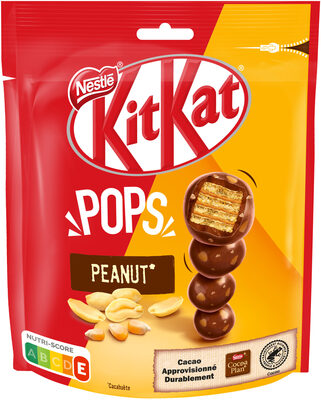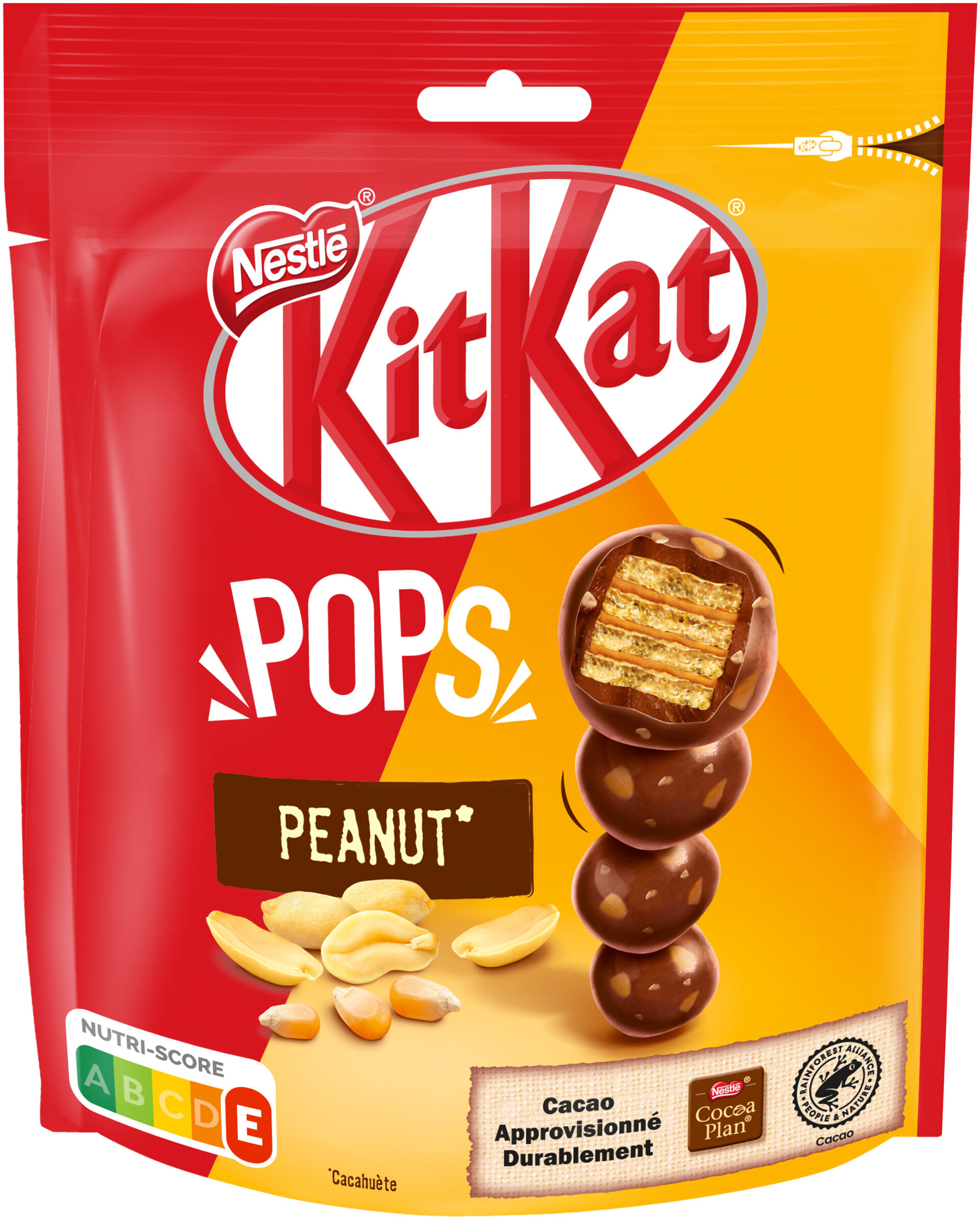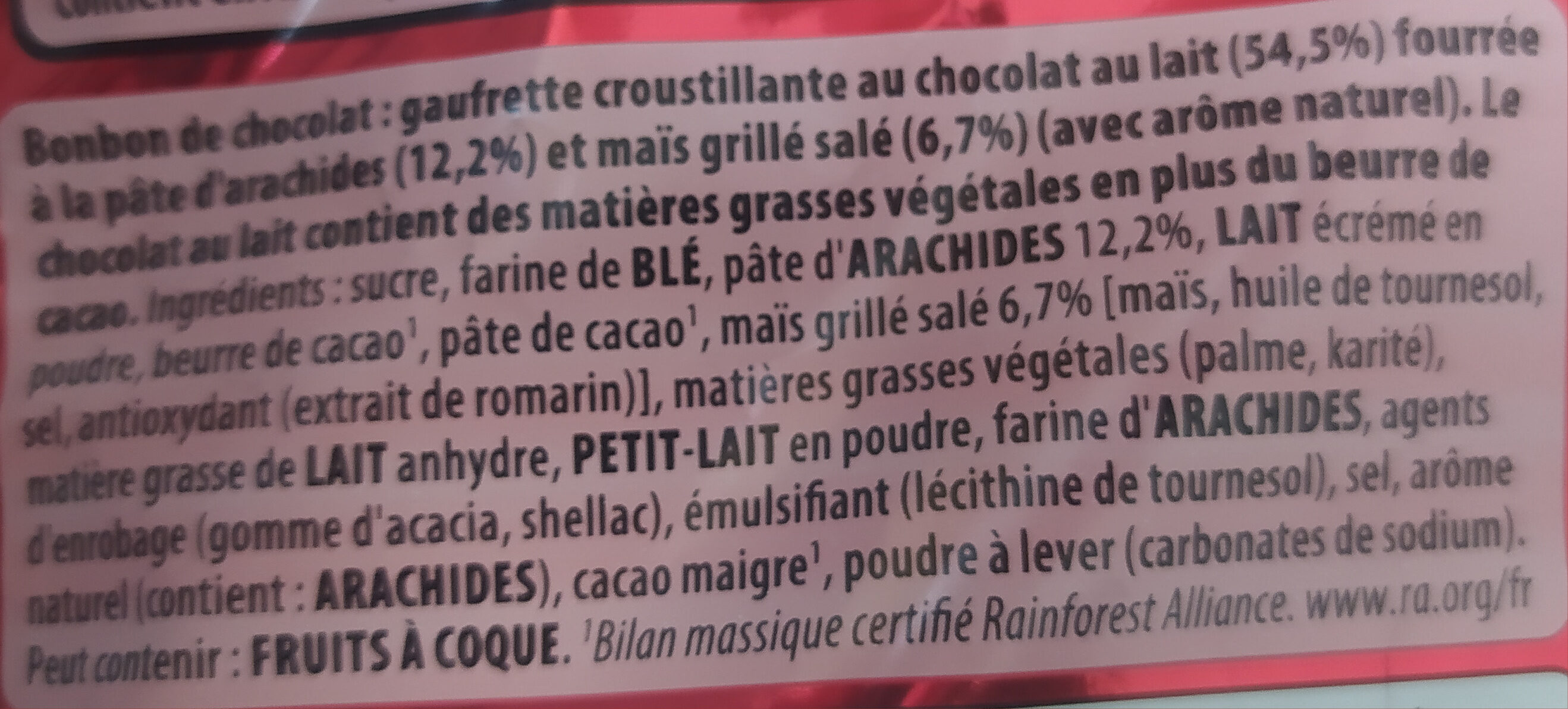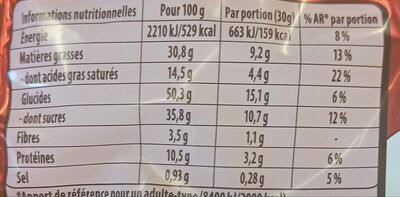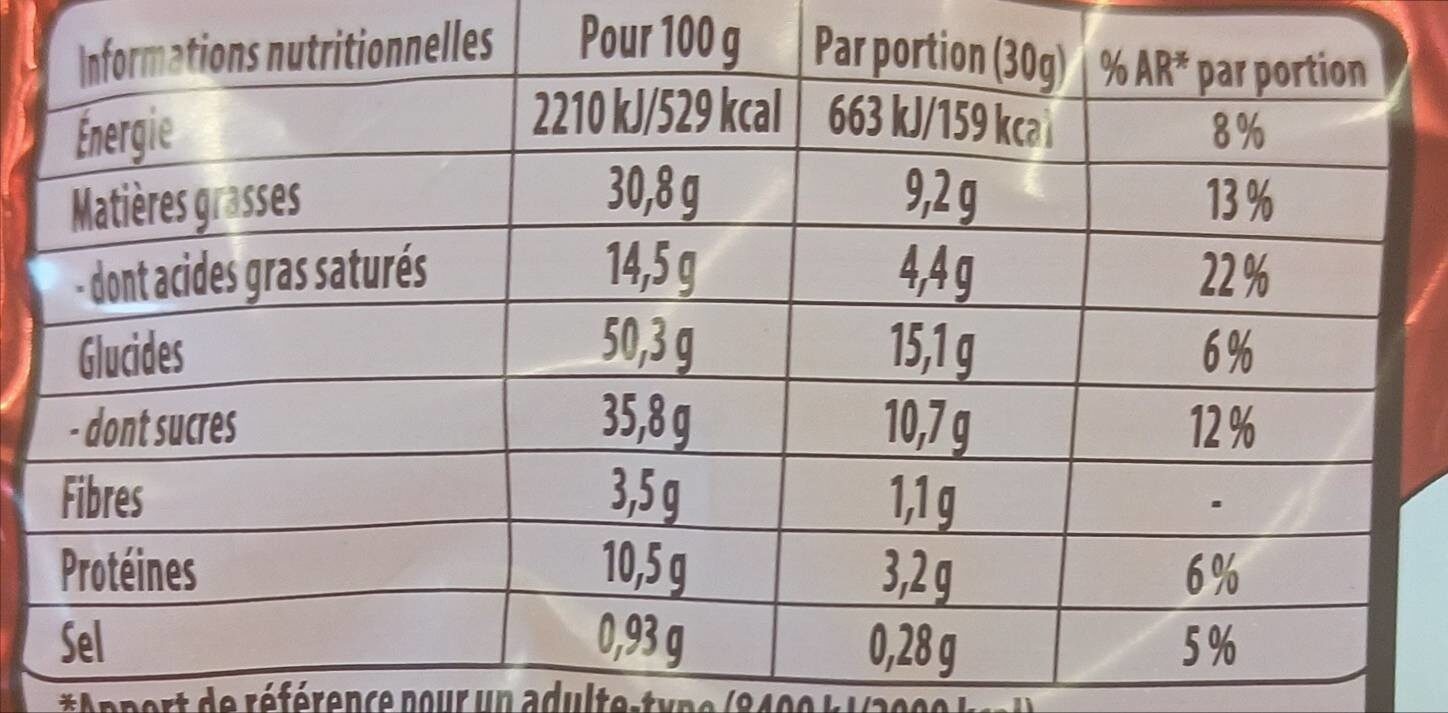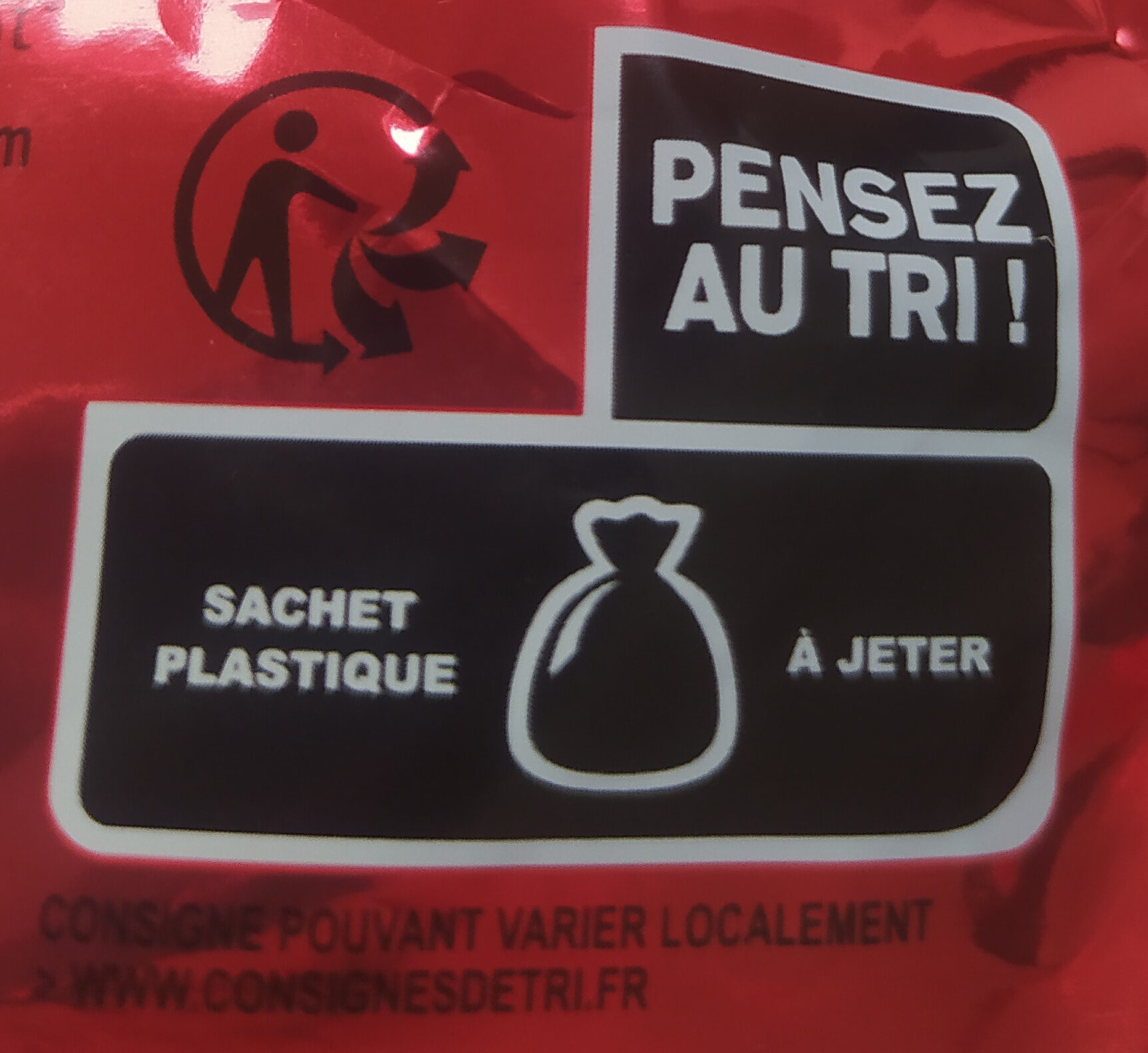KITKAT POPS Peanut* 200g. *Cacahuète - Nestlé - 200 g
This product page is not complete. You can help to complete it by editing it and adding more data from the photos we have, or by taking more photos using the app for Android or iPhone/iPad. Thank you!
×
Some of the data for this product has been provided directly by the manufacturer NESTLE FRANCE. - Customer service: Contact form 0 809 400 412 (service gratuit + prix de l'appel)
Barcode: 3800020483961 (EAN / EAN-13)
Common name: Bonbon de chocolat : gaufrette croustillante au chocolat au lait (54,5%) fourrée à la pâte d'arachides (12,2%) et maïs grillé salé (6,7%) (avec arôme naturel)
Quantity: 200 g
Packaging: Bag, Box, fr:1 sachet en plastique à jeter
Brands: Nestlé
Categories: Snacks, Sweet snacks, Cocoa and its products, Confectioneries, Chocolate candies, Bonbons
Labels, certifications, awards:
Nutriscore, Nutriscore Grade E, Rainforest Alliance, Triman

Stores: Super U
Countries where sold: France
Matching with your preferences
Other information
Preparation: Produit prêt à consommer
Conservation conditions: A conserver au frais et au sec.
Customer service: Nestlé France, 34-40 rue Guynemer 92130 Issy-les-Moulineaux
Report a problem
Data sources
The manufacturer NESTLE FRANCE uses Equadis to automatically transmit data and photos for its products.
Product added on by kiliweb
Last edit of product page on by moon-rabbit.
Product page also edited by ecoscore-impact-estimator, fafarux, inf, nathanbnm, org-nestle-france, packbot, quechoisir, roboto-app, thaialagata, yuka.sY2b0xO6T85zoF3NwEKvlkpqbvf-8xH1bjf6h2iC-e-NNZm0f-FCuYvzM6s, yuka.sY2b0xO6T85zoF3NwEKvlmB5XIfSvTTaBTfQlxKW5cyofsHmbcNjuNDjIqg, yuka.sY2b0xO6T85zoF3NwEKvlmxEfvPfrjj8JizTpGvTnubUPJzuY8Br7IGmb6s.
